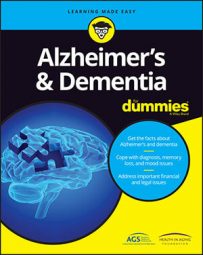- Addison's and Cushing's diseases: These conditions both affect the levels of a hormone called cortisol. In Addison's, not enough cortisol is produced; in Cushing's, too much. The effect of these altered cortisol levels is a corresponding upset in the levels of some of the minerals in the bloodstream, most notably sodium and potassium, which may lead to confusion. Thankfully, by treating the underlying cause, the confusion is reversible.
- Diabetes: One of the most common reasons for doctors seeing people who are acutely confused is that their blood sugar levels are either too low or too high. Neither situation is particularly good for people, but when their blood sugar is adjusted, their confusion quickly fades.
- Thyroid disease: Thyroxine is a hormone produced in the thyroid gland, which sits at the front of the neck. In simple terms, this hormone is involved in metabolism: too much and everything in the body is in a rush (the heart races, diarrhea develops, and people become agitated); too little and everything slows down (pulse is slow, people gain weight, skin becomes dry, hair falls out, and they can become constipated). Both an under and overactive thyroid can cause confusion. In both cases, doctors can reverse the confusion by treating the underlying cause and normalizing the level of thyroid hormone.
- Hyperparathyroidism: The parathyroid glands are pea sized and sit just behind the thyroid gland in the neck. The hormone they produce, parathyroid hormone, is involved in controlling levels of calcium, phosphate, and vitamin D. If the gland becomes overactive, levels of calcium in the blood shoot up. Too much calcium can affect personality and consciousness, cause disorientation and, if not corrected quickly enough, coma. Treatment is curative.
- Vitamin B12 deficiency: This vitamin, found in fish, poultry, eggs, and dairy products, is absorbed in the gut during digestion with the help of a protein called intrinsic factor. Some people either don't make enough of this protein or have a condition that destroys it. As a result, they don't absorb vitamin B12. One of the roles of this vitamin is ensuring healthy nerve function. A lack can cause numbness and tingling in the hands and feet and, if significant, mood changes and poor memory. Treatment by injection of vitamin B12 avoids the problem of lack of stomach absorption and can improve symptoms.

